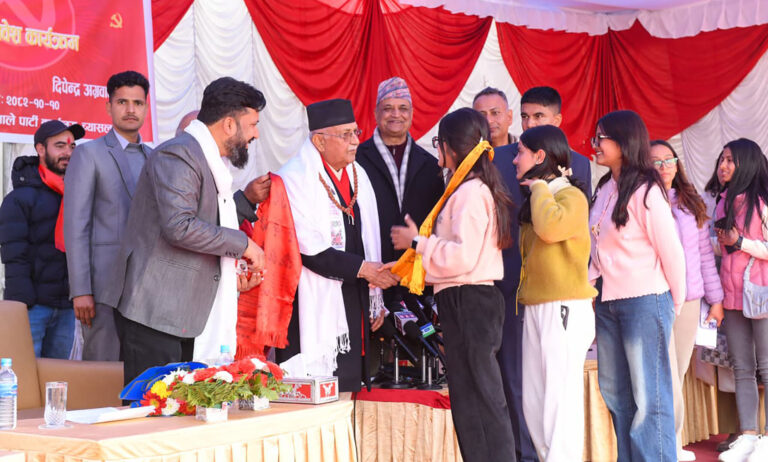
Rishi Panchami, observed annually on the fifth day of the bright fortnight of the lunar month of Bhadra, is being marked today by Nepali women through worship of the Sapta Rishis (seven sages) along with Arundhati.
As part of the ritual, women wake up early, go to nearby rivers, ponds, lakes, or streams, brush their teeth with 365 stems of datiban (a medicinal herb), and bathe using cow dung, clay, and ash. According to religious belief, any errors committed during menstruation can be absolved through worship of Arundhati and the Sapta Rishis on this day.
Traditional scriptures state that during menstruation, women are considered impure for three days—called Chandalni on the first day, Brahmaghatini on the second, and Dhovini on the third—regaining purity only after ritual bathing on the fourth day. Thus, bathing with clay, cow dung, and ash, and consuming Panchagavya (a sacred mixture of cow products) on Rishi Panchami is believed to purify and remove such impurities, according to Prof. Dr. Ramchandra Gautam, chairman of the Nepal Panchanga Nirnayak Bikas Samiti and a scholar of Dharma Shastra.
After purification, devotees worship Arundhati along with the seven sages—Atri, Gautam, Bharadwaj, Jamadagni, Vashistha, Kashyap, and Vishwamitra. This ritual is known as Rishi Panchami Puja.
A legend is also associated with the festival. It is believed that when Indra killed Vishwaroop by cutting off his head into three pieces, he incurred the sin of Brahmahatya (killing a Brahmin). To reduce his suffering, Brahma made Indra bear the sin for a year and distributed the remaining portion among Earth, trees, water, and women. Hence, barren land, tree resin, bubbles in water, and menstrual flow in women are linked to this division of sin, according to scholar Pandit Madhusudan Subedi.
Devotees also believe that the impure blood discharged during menstruation could cause diseases, affecting women themselves. Worship of the Sapta Rishis on Rishi Panchami is therefore considered a way to gain liberation from such afflictions.
As part of the vow, women eat only one meal of havishya (simple food) comprising grains such as sama, kaguno, tubers, and karkalo (taro). Large crowds of women devotees gather at temples dedicated to Risheshwar, including those in Teku and Mulpani of Kathmandu, to perform special worship on this occasion.




